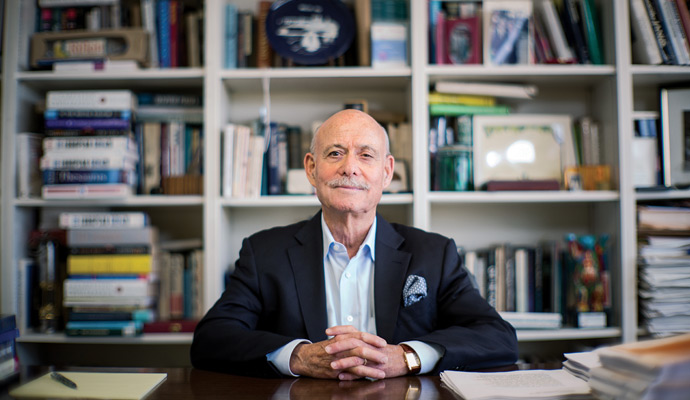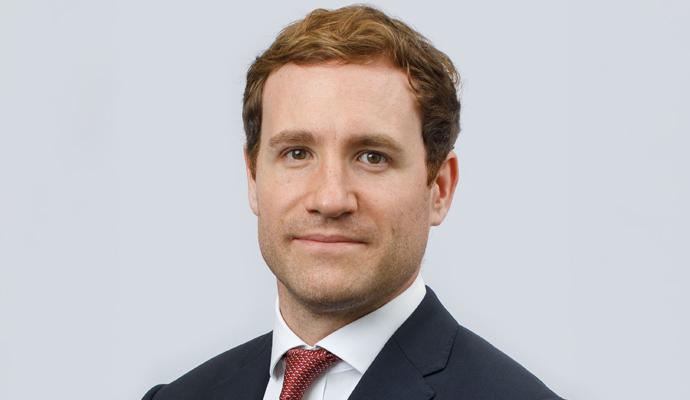Katherine Milkman on why fresh starts matter
The Wharton professor says moments when you wipe the slate clean can help you meet your goals.
At one time or another, most of us have struggled to do the things we know we should. Whether it’s in our personal lives or at work, we fall short of a goal, not because it’s unattainable but because we fail to exert the effort required.
Katherine Milkman is determined to help us do better next time. In one of her most recent studies, the James G. Campbell Jr. Assistant Professor of Operations and Information Management at the Wharton School at the University of Pennsylvania looks at what she and her coauthors call the “fresh-start effect”: the energy and determination we feel when we’re able to wipe the slate clean. According to Milkman’s research, the same momentum that drives us to join the gym in January can be harnessed to help us focus on the pursuit of goals at other times throughout the year. In these moments when we can begin anew, we have a natural motivation to work harder. And, Milkman finds, fresh-start moments are all around us. An ordinary Monday takes on a new identity when it’s framed as an opportunity to shed the weight of the previous week.
This isn’t Milkman’s first foray into encouraging self-discipline. She’s also done research on how bundling your challenging tasks with your temptations—combining the things you know you should do, but might be inclined to skip, with the things that give you more instant gratification—can help you tackle those tougher tasks. (Watch her presentation on holding The Hunger Games hostage and you may make an extra trip to the gym this week.)
Her research has powerful management implications. Understanding what drags people down, and what can lift them back up with renewed vigor, has the potential to create a more committed and satisfied workforce. Milkman (@katy_milkman), one of Poets & Quants’ 2011 “Top 40 under 40” b-school professors and 2013 Wharton “Iron Prof,” recently spoke with strategy+business about how her findings can put success within reach.
S+B: Your research is largely focused on what you call “want/should” conflicts.
MILKMAN: We often feel conflicted when choosing between “wants,” things that are instantly gratifying but not so great for us in the long run, and “shoulds,” which are good for us in the long run but may not be so pleasant in the moment. These “want/should” conflicts are all around us. We face them at work: browsing the Internet versus doubling down our efforts to meet our deadlines. We face them in a lot of health contexts. We face them when deciding whether to spend versus saving for retirement.
When we think about why people aren’t accomplishing their goals, or about why people aren’t succeeding and achieving more, one answer is that they lack ability—that they don’t have the education and the skills that they need. But another answer is that they struggle with self-control. It’s hard to focus and pay attention, and to put all of our effort behind our goals, when there are lots of other tempting things to spend our time on.
My research looks at failures of self-control as an obstacle to success, and seeks to develop strategies for overcoming this pattern—to determine how we can help people to do what they should more often.
S+B: One of these strategies involves what you call the fresh-start effect. Can you talk about that?
MILKMAN: We’re all familiar with the New Year’s effect—the idea that people tend to make resolutions and pursue their goals with enhanced vigor at the start of every new year. But my research with Hengchen Dai and Jason Riis has shown that it’s not just about New Year’s; it’s about the start of many cycles. For example, at the beginning of a new week, the start of a new month, following a birthday, or after a holiday from work, people redouble their efforts to achieve their goals.
Why? Because in these fresh-start moments, people feel more distant from their past failures. Those failures are the old you, and this is the new you. The fresh-start effect hinges on the idea that we don’t feel as perfect about our past as we’d like. We’re always striving to be better. And when we can wipe out all those failures and look at a clean slate, it makes us feel more capable and drives us forward.
“In ‘fresh start’ moments, people feel more distant from their past failures.”
S+B: It sounds like there are fresh-start moments hiding in plain sight.
MILKMAN: Our research suggests that you may be able to create fresh starts, or frame fresh starts, to increase motivation on an otherwise mundane day. For instance, we conducted a study in which we told people that they would have an opportunity to receive a reminder to tackle their goals. We offered them the option to receive that reminder on a number of different days in March, including March 20. In one version of the study, we simply described March 20 as “the third Thursday in March,” and asked if that was a good day to get a reminder. In another version of the study, we described March 20 as “the first day of spring.” In the second version, many more people chose to receive their reminder on that day.
“You may be able to create fresh starts to increase motivation on an otherwise mundane day.”
Now, most people probably aren’t paying close attention to the first day of spring. But according to our findings, you can pick days that people wouldn’t normally notice, and say, “This is a great opportunity to reflect on your goals, think about what you want to accomplish in the coming year, or in the coming months, or in the coming weeks.” For managers, my research suggests that the best times to encourage your employees to take new steps toward their goals—and to give them the tools they need to achieve them—will be these fresh-start moments, because that’s when people have a natural inclination to put in the extra effort.
S+B: How long does the effect last? Can it be maintained for a long period or is it better for meeting short-term goals?
MILKMAN: The effect seems to vary by how big the fresh-start moment is. The New Year’s effect is bigger and lasts longer than the Monday effect. But then Monday is better than Tuesday, Tuesday is in turn better than Wednesday, which is better than Thursday, and so on.
However, it’s not a matter of finding one fresh-start moment to motivate your troops and then you’re done. You need to be attentive to the fact that motivation tapers off, and that you need to keep motivating people and keep looking for opportunities to grab their attention and give them the sense of empowerment they need to succeed. Everybody who studies goals has always known that there’s a lot of work to be done—unfortunately, we have yet to discover a one-off intervention that lasts forever.
S+B: Do you think that people would perceive this kind of action by managers—framing fresh starts—as a bit disingenuous?
MILKMAN: There’s this concern that comes up sometimes about reactance, which is the term that academics typically use to refer to what you’re talking about, when people feel manipulated and react negatively. And there is lots of good research showing that if people feel manipulated, the effort can backfire. In our research on fresh starts so far, however, we haven’t seen any evidence of that.
I think one of the nice things about goals and motivation is that, most of the time, what you’re trying to encourage people to do is aligned with what they already want to do. It doesn’t engender this sense that you’re coercing them. So I think we’re safe so long as we’re using these strategies to try to encourage behaviors people want to engage in, but are struggling to follow through on. That’s when fresh starts work—when people really want to accomplish things, but have fallen on their face before, and they need that extra motivation to keep going.
S+B: You’ve also written about “temptation bundling” as a means of staying on track to meet your goals. How does it work?
MILKMAN: Imagine allowing yourself to watch your favorite trashy TV show only when exercising at the gym. You’ll stop wasting time at home watching that show, and you’ll start craving trips to the gym to find out what happens in the next episode. You won’t feel guilty while watching the show, and time will fly while you’re at the gym. Or what if you allow yourself to go to your favorite restaurant only when meeting with your mentee, so that you reserve that special treat for spending time with that employee you’ve agreed to advise? Of course, this isn’t to say that mentoring is a hardship, but it’s something that can slip through the cracks when you’re overcommitted.
The idea is that to get us over the hump of inaction, we may want to bundle “should” activities with things we have a strong desire to do. Temptation bundling is a tool we can use to help ourselves—we know our own guilty pleasures—or that a manager could help us use by acting as a monitor or referee. It can allow us to solve two problems at once, by reducing the amount of time we spend indulging in temptations while simultaneously increasing the time spent doing the things we should. In that way, it’s another strategy that can be used to help us achieve our goals. ![]()
Reprint No. 00266





